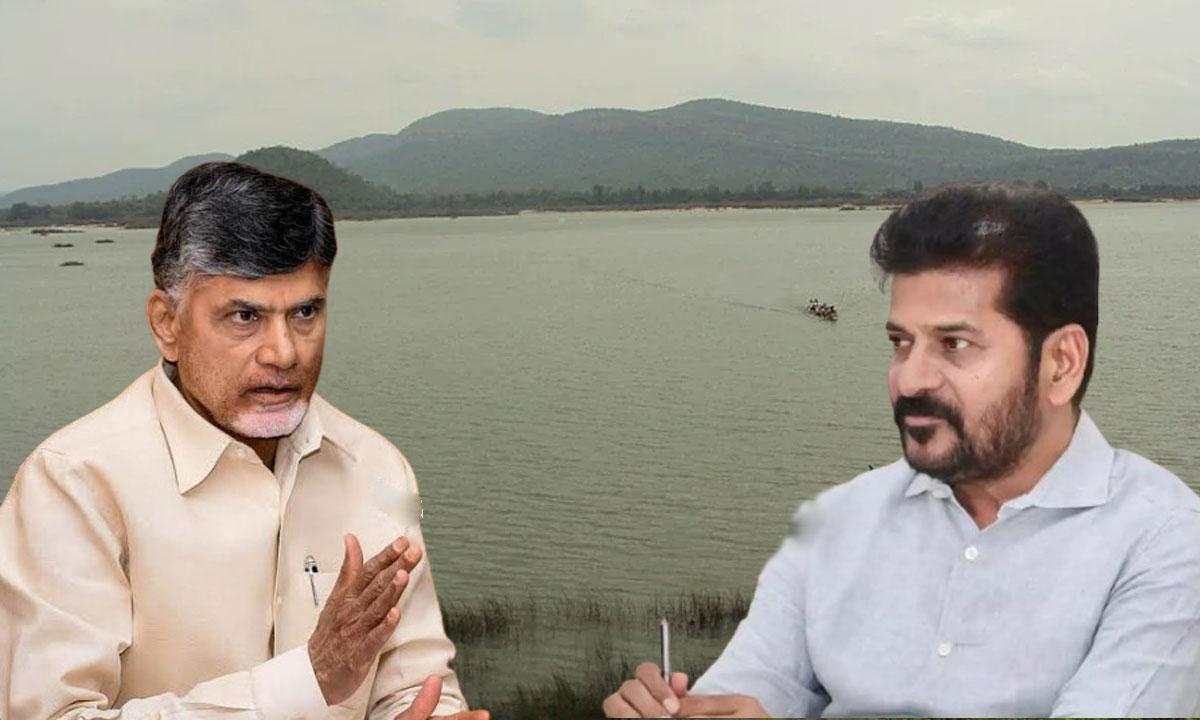Godavari-Banakacherla Link Project: Telangana Raises Strong Objection Ahead of CM-Level Talks
Godavari-Banakacherla Link Project: Just ahead of a key meeting between the Chief Ministers of Telangana and Andhra Pradesh, the Telangana Government

Hyderabad: Godavari-Banakacherla Link Project: Just ahead of a key meeting between the Chief Ministers of Telangana and Andhra Pradesh, the Telangana Government has submitted a formal and strongly worded letter opposing the Godavari-Banakacherla link project, calling it “procedurally untenable and premature”.
The meeting, scheduled for Wednesday afternoon and convened by the Union Ministry of Jal Shakti, aims to foster dialogue between the two Telugu-speaking states over inter-state water sharing.
Table of Contents
Godavari-Banakacherla Link Project: Lack of Statutory Clearances, Tribunal Violations Cited
In its letter to the Secretary, Ministry of Jal Shakti, Telangana’s Chief Secretary asserted that the project violates several binding legal frameworks, including:
- The Godavari Water Disputes Tribunal (GWDT) Award (1980)
- The Andhra Pradesh Reorganisation Act, 2014
The Telangana government pointed out that the proposed diversion of 200 TMC of Godavari floodwaters via the Polavaram project to Banakacherla bypasses mandatory clearances and inter-state consultations, as required under Sections 85(8)(d) and 90 of the AP Reorganisation Act and Annexures G and H of the GWDT Award.
Also Read: 42% BC Reservation Quota in Local Body Elections to Reshape Grassroots Politics in Telangana
Telangana Demands Agenda Revision, Defers Discussion
Telangana urged the Centre to defer any discussion on the project in the CM-level meeting and revise the agenda to exclude the item. It emphasized that no project should be discussed without statutory approvals, and the Godavari-Banakacherla link had failed to obtain clearances from:
- Central Water Commission (CWC)
- Godavari River Management Board (GRMB)
- Krishna River Management Board (KRMB)
- Apex Council
Andhra CM Bats for the Project, Telangana Seeks Balance
The move follows a meeting between Andhra Pradesh CM N. Chandrababu Naidu and Union Home Minister Amit Shah, where Naidu justified the diversion as a plan to channel surplus waters to drought-prone regions of AP. He argued that as the last riparian state, Andhra Pradesh had the right to utilize the waters.
In response, Telangana warned that unilateral diversions would impact its own drought-prone areas and violate tribunal allocations.
Telangana Highlights Flaws in Pre-Feasibility Report
Telangana alleged that the Pre-Feasibility Report (PFR) prepared by Andhra Pradesh was riddled with data gaps and questionable water availability assumptions. The CWC itself had raised concerns, demanding a simulation study and proper dependability calculations to verify water availability and technical feasibility.
Central Agencies Echo Telangana’s Concerns
Telangana’s objections have also found support in key central bodies:
- Polavaram Project Authority (PPA) said the 200 TMC diversion is not part of the approved DPR.
- GRMB warned that the proposal alters the operation schedule of Polavaram, requiring consent from all co-basin states.
- Expert Appraisal Committee (EAC) of the MoEF&CC returned the proposal, citing legal violations and lack of environmental clearance.
- CWC flagged technical inaccuracies in the water availability data.
Environmental and Legal Hurdles Remain
The Polavaram project, which serves as the base for the proposed diversion, still faces submergence issues in Odisha and Chhattisgarh, which are pending in court. Telangana argued that diverting waters before resolving these disputes and achieving Full Reservoir Level (FRL) would be premature and damaging.
Telangana Seeks Inclusion of Its Proposals
Apart from opposing the current project, Telangana also reiterated its demand for its own pending proposals and issues to be included in the meeting’s agenda, ensuring balanced deliberations.
As tensions rise between the Telugu states over river water sharing, the Godavari-Banakacherla project has become a flashpoint, prompting legal, technical, and political scrutiny at the highest levels. The outcome of the CM-level talks could have long-term implications for inter-state water governance in South India.
